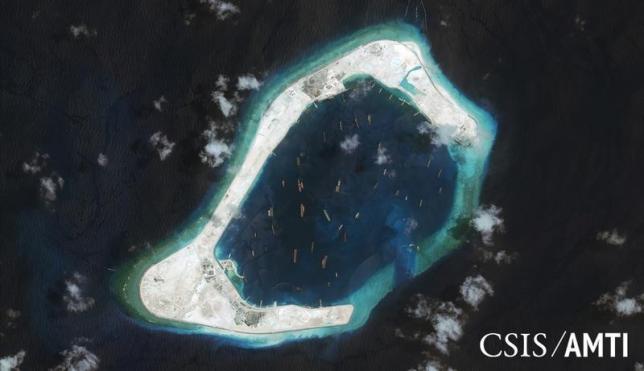US to boost South China Sea freedom of navigation moves, admiral says
WASHINGTON: The United States, which is worried by China's military buildup to assert dominance in the South China Sea, will increase freedom-of-navigation operations there, a senior Pentagon official said on Wednesday.
"We will be doing them more, and we'll be doing them with greater complexity in the future and ... we'll fly, sail and operate wherever international law allows," Admiral Harry Harris, head of the U.S. Pacific Command, told a hearing of the House of Representatives Armed Services Committee.
"We must continue to operate in the South China Sea to demonstrate that water space and the air above it is international," Harris said.
On Tuesday, Harris said in comments coinciding with a visit to Washington by Chinese Foreign Minister Wang Yi that China was "changing the operational landscape" in the South China Sea by deploying missiles and radar as part of an effort to militarily dominate East Asia.
China says its military facilities in the South China Sea are "legal and appropriate," and on Tuesday, in an apparent reference to U.S. patrols, Wang said Beijing hoped not to see more close-up reconnaissance, or the dispatch of missile destroyers or strategic bombers.
Wang met with U.S. national security adviser Susan Rice on Wednesday and they "candidly discussed" maritime issues, the White House said in a statement. Rice emphasized strong U.S. support for freedom of navigation and urged China to address regional concerns, the statement said.
China's official Xinhua news agency said of the meeting that both countries believed all sides should work hard to maintain the peace and stability of the South China Sea.
"The South China Sea issue should be resolved via dialogue and peaceful means," Xinhua added.
Harris, asked what more could be done to deter militarization, said the United States could deploy more naval assets, although there were significant "fiscal, diplomatic and political hurdles" in the way of stationing a second aircraft carrier group in the region.
"We could consider putting another (attack) submarine out there, we could put additional destroyers forward ...there are a lot of things we could do, short of putting a full carrier strike group in the Western Pacific," he said.
China claims most of the South China Sea, through which more than $5 trillion in global trade passes every year. Vietnam, Malaysia, Brunei, the Philippines and Taiwan have rival claims.
Harris's comments came a day after he said China had deployed surface-to-air missiles on Woody Island in the South China Sea's Paracel chain and radars on Cuarteron Reef in the Spratly islands further to the south.
On Tuesday, his command said China's repeated deployment of advanced fighter aircraft to Woody Island was part of a disturbing trend that was inconsistent with Beijing's commitment to avoid actions that could escalate disputes.
Last month, a U.S. Navy destroyer carried out a patrol within 12 nautical miles of Triton Island in the Paracels, a move China called provocative.
The United States has also conducted sea and air patrols near artificial islands China has built in the Spratlys, including by two B-52 strategic bombers in November.






